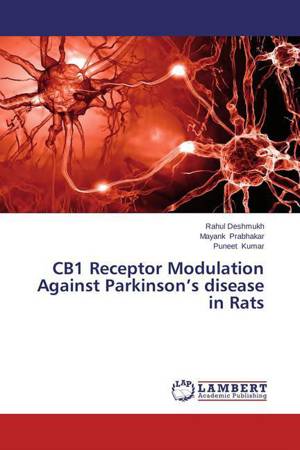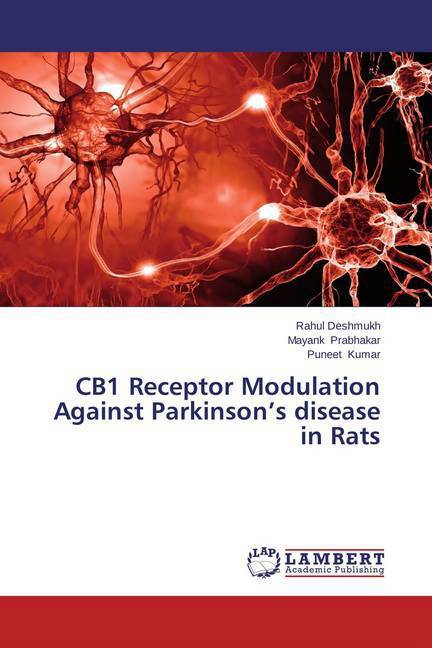
- Afhalen na 1 uur in een winkel met voorraad
- Gratis thuislevering in België vanaf € 30
- Ruim aanbod met 7 miljoen producten
- Afhalen na 1 uur in een winkel met voorraad
- Gratis thuislevering in België vanaf € 30
- Ruim aanbod met 7 miljoen producten
Zoeken
CB1 Receptor Modulation Against Parkinson's disease in Rats
Rahul Deshmukh, Mayank Prabhakar, Puneet Kumar
Paperback | Engels
€ 60,95
+ 121 punten
Omschrijving
Recently, the controversial role of cannabinoid receptors was reported in the pathophysiology of PD. In the present study we have investigated the role of CB1 receptors in motor behaviour. Repeated intranigral (day 1, 7, 14) infusion of MPTP was done to produce stable motor deficits in rats. CB1 receptor agonist, Noladin ether and antagonist AM 251, was administered alone or in combination in MPTP-infused rats. Grip strength, spontaneous locomotor activity and narrow beam walk tests were used to access motor behaviours. Oxidative stress and pro-inflammatory cytokine levels were determined in striatal brain homogenates. MPTP-infused rats showed stable motor deficit and elevation in oxidative stress and cytokine levels. AM 251 attenuated MPYP-induced motor dysfunction, oxidative stress and neuroinflammation in rats. Conversely, noladin ether synergized MPTP- mediated neurotoxicity, which was significantly attenuated by AM 251 pre-treatment. The above results suggests that sustained activation of CB1 receptors may play a crucial role in the development motor dysfunction and thus CB1 receptor blockade would be therapeutic in PD.
Specificaties
Betrokkenen
- Auteur(s):
- Uitgeverij:
Inhoud
- Aantal bladzijden:
- 108
- Taal:
- Engels
Eigenschappen
- Productcode (EAN):
- 9783659645860
- Verschijningsdatum:
- 2/12/2014
- Uitvoering:
- Paperback
- Afmetingen:
- 150 mm x 220 mm
- Gewicht:
- 168 g

Alleen bij Standaard Boekhandel
+ 121 punten op je klantenkaart van Standaard Boekhandel
Beoordelingen
We publiceren alleen reviews die voldoen aan de voorwaarden voor reviews. Bekijk onze voorwaarden voor reviews.








